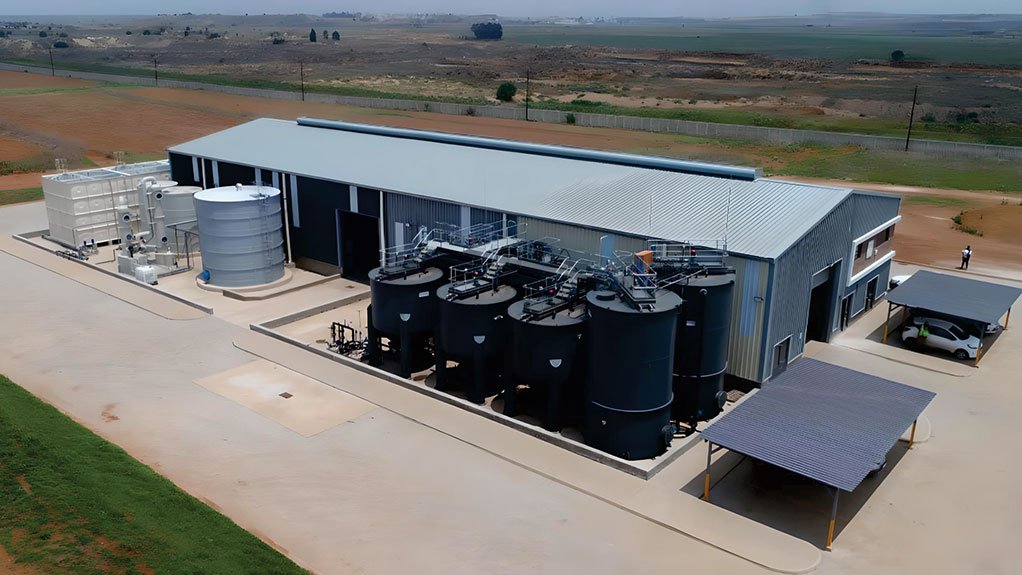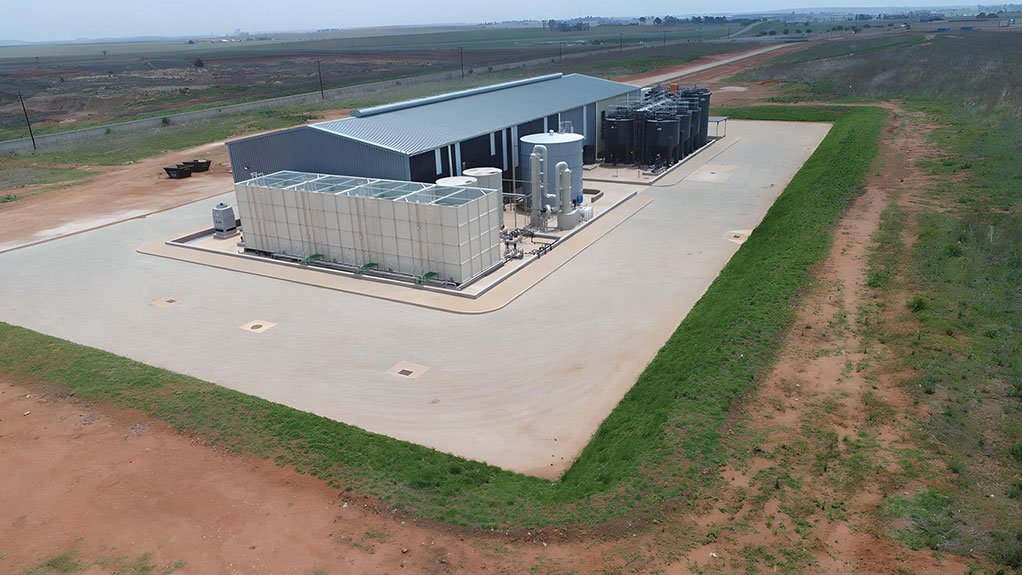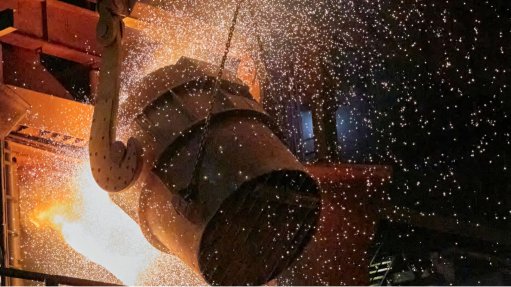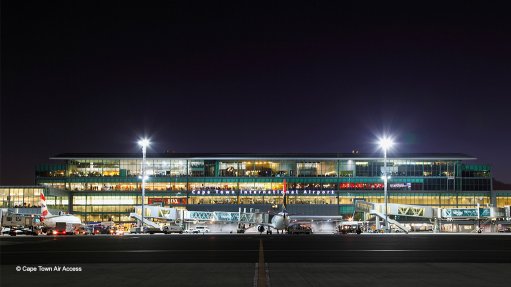Better wastewater management will reduce pressure on South Africa’s natural systems
Climate change and failing infrastructure are placing greater pressure on South Africa’s scarce water resources, exacerbating the country’s water crisis and emphasising the need to better address local wastewater management.
“We need to find ways to put less strain on our natural systems and alternative methods to preserve and protect our water sources,” says waste management company Interwaste group director of business development and marketing Kate Stubbs.
South Africa’s water crisis is projected to cause demand to exceed supply by between 1.6-billion and 2.7-billion cubic meters by 2030, according to the National Water and Sanitation Master Plan, and requires urgent action in sustainable water resource management.
With more than 80% of the country comprising semi-arid to arid land, access to good quality water has historically been a blessing, notes Stubbs.
However, climate change is having a significant impact on the country’s water sources and systems.
“We are, without a doubt, seeing a shift in rainwater patterns as well as intensity as was made clear with the recent flooding in Nelson Mandela Bay, in the Eastern Cape, which (like Cape Town) not so long ago also dealt with a significant drought. We are also experiencing increased intensity and extremity of these weather events,” states Stubbs.
While the abundance of water that comes with floods may be seen as advantageous by some, this water is not necessarily falling in catchment areas. Flooding also overwhelms existing systems, damaging the country’s already deteriorating infrastructure, which was highlighted in the Department of Water and Sanitation’s latest Green Drop report, published in December last year. Combined with the results of the No Drop and the Blue Drop reports, which were published at the same time, it is evident that the situation is critical.
“Sadly, the reports all show that in the last ten years there has been a massive decline in the quality of water and infrastructure, as well
as increased leakages. Gauteng alone loses about 40% of all the water the province produces.
“Further, seven out of 13 of our major water systems are pre-dicted to be in deficit by 2040, but in about five years’, by 2030, we’ll have a 17% water deficit,” elaborates Stubbs.
Additionally, to live, a large part of South Africa’s population remains reliant on boreholes or water from rivers, which are in a very dire state, owing to pollution, she adds.
The Silver Lining
While the current picture of South Africa’s water supply may seem bleak, there is an opportunity for the private sector to reduce its demand on South Africa’s water systems by investing in in-house or out-sourced wastewater treatment solutions.
Interwaste launched a R100-million leachate and effluent treatment plant this year, in Delmas, Mpumalanga, which is a first for South Africa. Stubbs says: “The plant is running beautifully, and we were able to recover 80% to 90% of contaminated water as clean water.”
Leachate, the liquid that usually seeps through the waste body and contaminates groundwater, is safely captured at Interwaste’s Delmas landfill using a liner system. The leachate is extracted for treatment and, thereafter, used on site for industrial cleaning and dust suppression purposes, for example, reducing Interwaste’s dependence on municipal water supplies.
This initiative contributes to Inter-waste’s parent company, French waste management specialist Séché Environnement’s, group-wide goal of reducing water consumption by 10% by 2025.
“While the plant was developed to enable Interwaste’s autonomy and ensure that we’re managing our own impact on the environment, we can also support clients by treating their liquid waste stream. Therefore, we’re able to process a variety of industrial liquid waste streams through that plant to produce clean, reusable process water,” advises Stubbs.
The plant took two years to develop and uses technology based on international best practice. With the assistance of local engineers and specialists, Interwaste designed the system to work in the South African context.
“Most of the technology was manufactured and sourced locally. The evaporators were manufactured in Germany but were still sourced by local contractors. The entire plant is run by South Africans and we’re very proud of that,” elaborates Stubbs.
She highlights that liquid waste was banned locally from landfill disposal in 2019. This move was a strong driver of change, encouraging large industrial effluent or liquid waste producers to find an innovative, compliant means of disposing of their liquid waste.
“Many large users of water, such as breweries and dairies, have started implementing effluent treatment plants on site because it makes sense financially, owing to the higher water tariffs for industrial users, and supports their environmental, social and governance goals. The treatment of liquid waste for reuse as process water in plants is also logical from a risk and business sustainability perspective.”
There is a significant opportunity for South Africa to start looking at how water can be safely reused for agriculture, industrial cleaning and processing purposes, for example, to limit the use of available freshwater sources, conserving them for consumption as potable water.
“By managing liquid waste effectively and safely, you’re not only protecting the environment by preventing pollution, but you are also preserving water for consumption by future generations,” concludes Stubbs.
Article Enquiry
Email Article
Save Article
Feedback
To advertise email advertising@creamermedia.co.za or click here
Press Office
Announcements
What's On
Subscribe to improve your user experience...
Option 1 (equivalent of R125 a month):
Receive a weekly copy of Creamer Media's Engineering News & Mining Weekly magazine
(print copy for those in South Africa and e-magazine for those outside of South Africa)
Receive daily email newsletters
Access to full search results
Access archive of magazine back copies
Access to Projects in Progress
Access to ONE Research Report of your choice in PDF format
Option 2 (equivalent of R375 a month):
All benefits from Option 1
PLUS
Access to Creamer Media's Research Channel Africa for ALL Research Reports, in PDF format, on various industrial and mining sectors
including Electricity; Water; Energy Transition; Hydrogen; Roads, Rail and Ports; Coal; Gold; Platinum; Battery Metals; etc.
Already a subscriber?
Forgotten your password?
Receive weekly copy of Creamer Media's Engineering News & Mining Weekly magazine (print copy for those in South Africa and e-magazine for those outside of South Africa)
➕
Recieve daily email newsletters
➕
Access to full search results
➕
Access archive of magazine back copies
➕
Access to Projects in Progress
➕
Access to ONE Research Report of your choice in PDF format
RESEARCH CHANNEL AFRICA
R4500 (equivalent of R375 a month)
SUBSCRIBEAll benefits from Option 1
➕
Access to Creamer Media's Research Channel Africa for ALL Research Reports on various industrial and mining sectors, in PDF format, including on:
Electricity
➕
Water
➕
Energy Transition
➕
Hydrogen
➕
Roads, Rail and Ports
➕
Coal
➕
Gold
➕
Platinum
➕
Battery Metals
➕
etc.
Receive all benefits from Option 1 or Option 2 delivered to numerous people at your company
➕
Multiple User names and Passwords for simultaneous log-ins
➕
Intranet integration access to all in your organisation






















